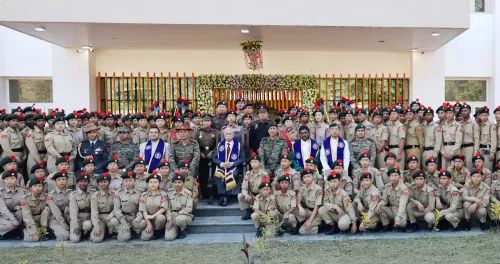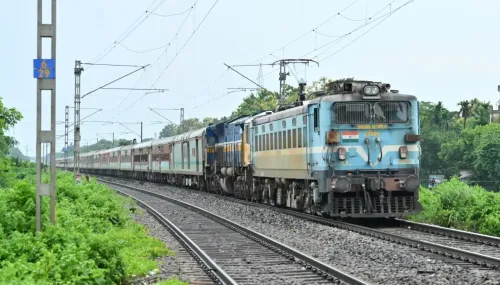How is Gujarat Upgrading Judicial Technology with Rs 15 Crore?

Synopsis
Key Takeaways
- Gujarat government invests Rs 15 crore for judicial tech upgrades.
- Around 1,200 judges to be equipped with tablets and printers.
- This move aligns with India’s digital justice vision.
- Judicial reforms aim to improve case management efficiency.
- Part of the E-Courts Mission Mode Project.
Gandhinagar, July 11 (NationPress) The Gujarat government has unveiled a strategy to provide approximately 1,200 district judges with modern digital tools, including tablets and printers.
The initiative, spearheaded by the state’s Law Department under the guidance of Law Minister Rushikesh Patel, is in line with the national objective of creating a more technology-driven and transparent judicial system.
As part of this project, each judge will be given a tablet valued at Rs 80,000 and a printer worth Rs 20,000, totaling Rs 1 lakh in support per judicial officer. The state has allocated Rs 15 crore in the 2025–26 budget for this initiative.
Officials assert that this effort not only demonstrates the Gujarat government’s dedication to judicial reforms but also signifies a broader ambition of integrating the legal system into the digital age.
The implementation of these tools is anticipated to improve both efficiency and precision in case management and decision-making, ultimately enhancing the delivery of justice.
This decision has been strategically timed to align with the rollout of India’s newly reformed criminal laws—the Bharatiya Nyaya Sanhita (BNS), Bharatiya Nagarik Suraksha Sanhita (BNSS), and the Bharatiya Sakshya Adhiniyam (Indian Evidence Act). With the transition to these new legal frameworks, digital tools are expected to facilitate smoother processes and more effective judicial practices.
This initiative falls under the E-Courts Mission Mode Project, a flagship program of the Government of India, which complements Gujarat’s “Ease of Doing Justice” policy.
By providing judges with cutting-edge technology, the state aspires to simplify judicial proceedings, minimize paperwork, and ensure faster access to legal information and documentation.
Gujarat's judicial infrastructure encompasses over 1,600 courts statewide, including the Gujarat High Court in Ahmedabad, 36 district and sessions courts, and numerous subordinate courts such as civil, criminal, family, and magistrate courts operating at the taluka and metropolitan levels.
The state has also initiated e-courts at several locations to foster digital access to justice, with ongoing initiatives aimed at enhancing court infrastructure through both central and state programs.










